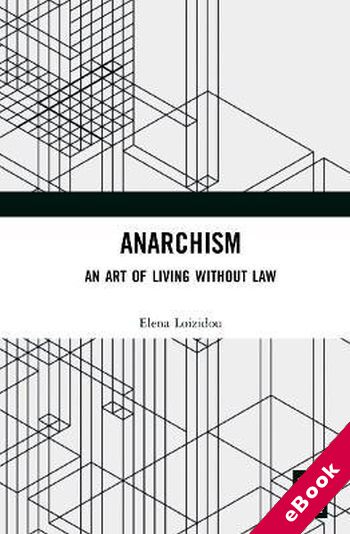
The device(s) you use to access the eBook content must be authorized with an Adobe ID before you download the product otherwise it will fail to register correctly.
For further information see https://www.wildy.com/ebook-formats
Once the order is confirmed an automated e-mail will be sent to you to allow you to download the eBook.
All eBooks are supplied firm sale and cannot be returned. If you believe there is a fault with your eBook then contact us on ebooks@wildy.com and we will help in resolving the issue. This does not affect your statutory rights.
The term anarchism derives from the Greek word ‘anarchia’ meaning without ruler or leader, and without law. But although the roots of the word can be traced back to ancient Greece, anarchism as a political ideology is relatively new. Anarchism developed as a political ideology at the end of the eighteenth century at the time of the emergence of the modern State. And, as is well known, anarchism developed both a politics and a way of life that did not include the State as its compass, support and structure.
In contrast to the extensive contemporary literature about anarchist politics and ideas, this book focuses on the practices and attitudes that constitute what the author refers to as an anarchist ‘art of life’. The book draws on archival material that record the life and actions of the anarchist Emma Goldman and her associates, legal documents and writings by classical (Pierre Joseph Proudhon, Peter Kropotkin) and contemporary anarchists (David Graeber, Saul Newman, Ciarra Bottici), as well as contemporary groups such as the Clandestine Insurgent Rebel Clown Army, and Occupy Wall Street. By attending to the idiosyncrasies of this art of life, it argues, we are better able to appreciate how anarchism is not some future utopian oriented project, waiting to come into existence after a revolution, but rather exists in parallel to the life and politics offered by the State.
Anarchism: An Art of Living without Law will be of interest to graduate students and academics working on critical legal theory, political theory, sociology and cultural studies.